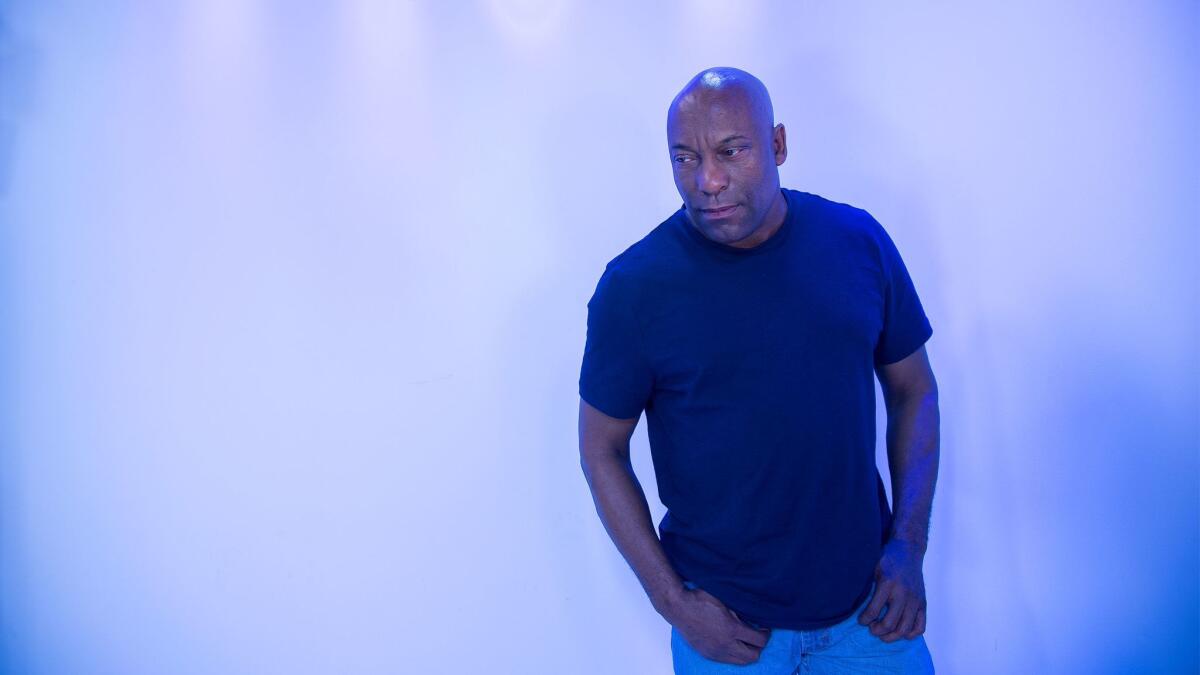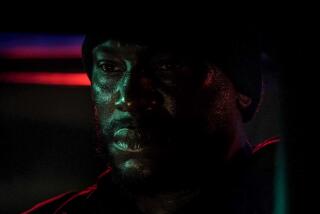John Singleton looks back on the 1992 L.A. riots in new documentary

- Share via
Director John Singleton (“Boyz n the Hood,” “2 Fast 2 Furious”) was on his way to the set of the Janet Jackson-Tupac Shakur romantic drama “Poetic Justice” on the afternoon of April 29, 1992, when a Ventura County jury in Simi Valley acquitted four LAPD officers in the beating of motorist Rodney G. King.
“I was mad,” Singleton, who grew up in South Central L.A., recalled recently. “And I wasn’t the only one.”
Singleton, now 49, looks back at the verdict that stunned Los Angeles and sparked upheaval across the city in “L.A. Burning: The Riots 25 Years Later,” which runs Tuesday on A&E.
What prompted you to produce this documentary?
There was more to explore. It wasn’t just a single three-day event — there are still people walking around who are emotionally scarred by that event.
What do you remember about that time?
I was about 24 years old and we were shooting, actually, in Simi Valley. We heard the verdicts on the radio and I was like, “What? This can’t be real. Let’s go down to the courthouse.” I got there just as they were coming out. My anger was overwhelming. You could feel it in the air. Television cameras came running over to me. They wanted to hear what I had to say. I was enraged. I wanted everyone to know that what was about to happen was because they let these guys off. They dropped a time bomb. And I knew the focus from all this would be about the aftermath, not about the unfair treatment. It’s about the lack of justice. About an hour later, stuff was happening on Florence and Normandie.

What was the mood like when you got back to set?
We were shooting at night and looking at the whole thing happening on a little black and white television. Half the crew was cheering on the rioting and half the crew was appalled and nervous.
What did you want to explore with this documentary?
We give voice to segments in the black community, the Hispanic community and the Korean community. We show how people are really still emotionally scarred from these events. And it’s also a little bit about why this happened. We use Rodney King as a through line and hopefully bring some revelatory thoughts about Rodney and what he went through before that happened.
The most-read Entertainment stories this hour »
Twitter: @villarrealy
More to Read
The complete guide to home viewing
Get Screen Gab for everything about the TV shows and streaming movies everyone’s talking about.
You may occasionally receive promotional content from the Los Angeles Times.







